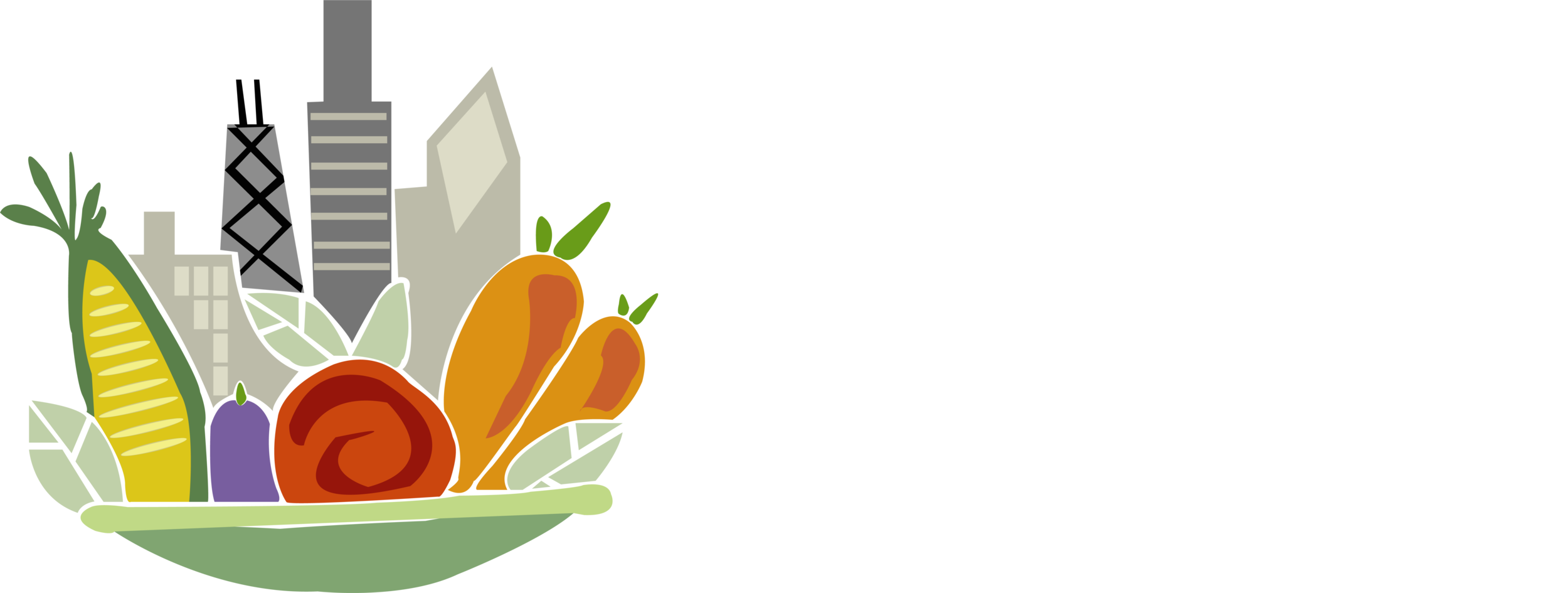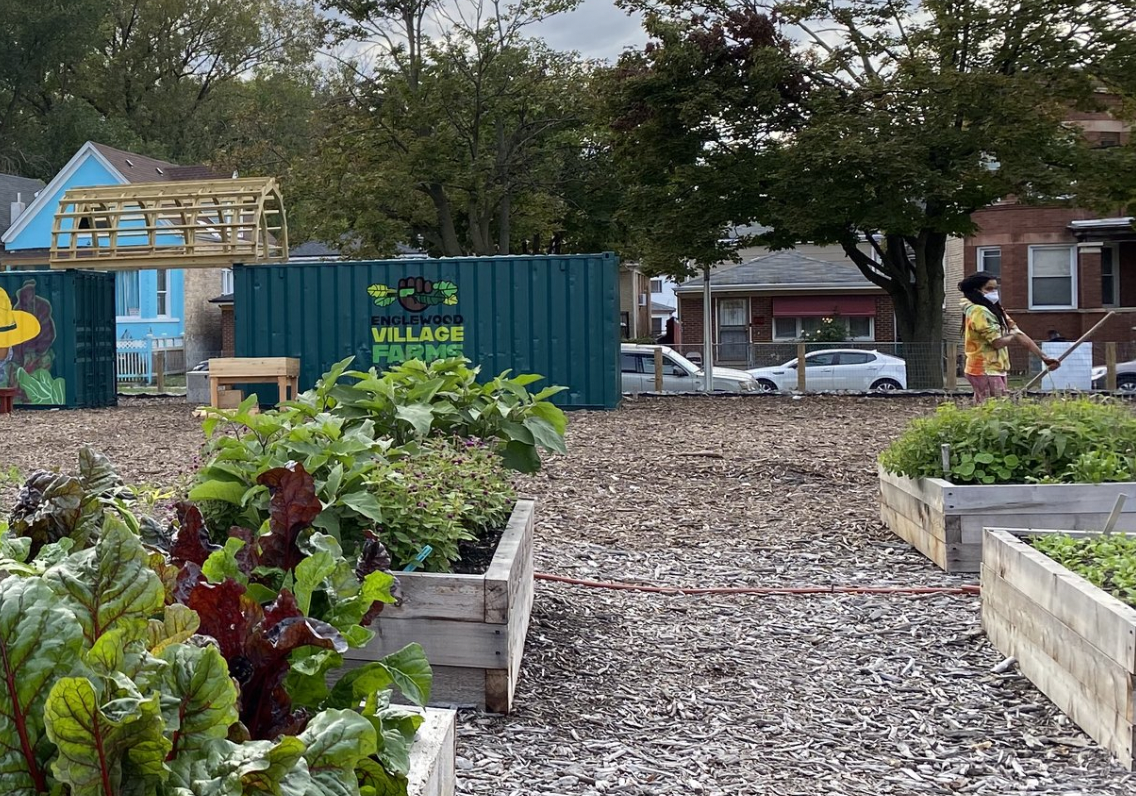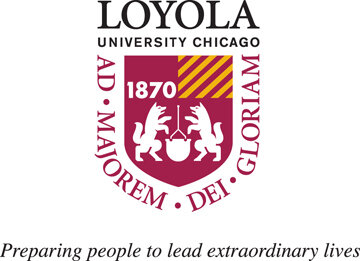
Current Initiatives
CF-MOB: Community Food Mobilization in Chicago, Good Food Purchasing Initiative
The Community Food Mobilization in Chicago (CF-MOB) project investigates mechanisms to transform the structures of food production and distribution in ways that center racial justice, sovereignty and community food access. It aims to advance understanding of public procurement's role in investing in local, equitable food supply chain development, while empowering and creating space for Black, Indigenous and People of Color (BIPOC) food stakeholders to self-determine their participation in it.
Evaluating Metro Chicago’s Good Food Purchasing Initiative
The Good Food Purchasing Initiative of Metro Chicago (GFPI) aims to ensure that institutional food purchasing advances an equitable, healthy, fair, local, humane, and sustainable food system while creating good food access for all. Coordinated by the Chicago Food Policy Action Council (CFPAC), the Chicago Department of Public Health (CDPH), and Cook County Department of Public Health (CCDPH), the GFPI team works with City and County departments and agencies to implement the Good Food Purchasing Policy (GFPP), which works with institutions to transform their food buying power to invest in five core values: local economies, environmental sustainability, valued workforce, animal welfare and nutrition.
M-CERF members have partnered with the GFPI team to develop a framework for evaluating the impact of GFPP adoption on the broader Chicago foodshed. The GFPI Evaluation Framework will be used to assess the impact that GFPP implementation and other associated activities has on increased racial & social equity in both the production and accessibility of high quality, culturally relevant food for all communities within the Chicago regional food system.
Food Hub Feasibility Study
M-CERF and its partner agencies are currently working towards building racial and social equity across the food supply chain, specifically to ensure that producers and food entrepreneurs who identify as Black, Indigenous & People of Color (BIPOC) in low-to-moderate income communities have support, resources, and access to sell food to public institutions that are implementing the Good Food Purchasing Program (GFPP).
One strategy to help urban and peri-urban BIPOC food producers sell to institutions is for the development of more food hubs, which are social enterprises that manages a combination of aggregation, processing, distribution, and/or marketing on behalf of multiple farms.The Food Hub Feasibility Study, led by Prof. Weslynne Ashton of Illinois Institute of Technology, explores the potential for developing a cooperatively-owned, BIPOC-led food hub in the Chicago region. The study involves a comparative analysis of food hubs across the United States, to garner trends in the sector and identify successful case studies. This is combined with a Chicago-focused market analysis, including a series of interviews and questions with existing food hubs, aggregators, and farmers to determine what niches and business models are most needed and likely to succeed.
The analysis gauges options for how the business would operate, under a set of assumptions such as:
· Assets that will need to be acquired
· Finances required to run the business
· Technology that will be incorporated
· Marketing strategies that will be executed
Check out the full study below to to learn more!
Food System Mapping
In efforts to develop a racially and socially equitable regional supply chain, Prof. Howard Rosing leads a group of researchers at DePaul University who are using GIS technologies to map Chicago’s foodshed within a 300 mile radius. One objective of this map is to further identify BIPOC producers in the region and explore supply chain development for those interested in accessing institutional market opportunities through the Good Food Purchasing Initiative of Metro Chicago.
This work is carried out in partnership with the Food Hub Feasibility Study, which assesses the feasibility for a BIPOC run and led regional food hub in the Chicago region. The Food Systems Map will be a tool utilized to understand the current landscape of specialty crop growers, USDA certified food hubs, and other local food infrastructure. Overall, this mapping is conducted with the intention of determining prevailing trends within the food value chain and analyzing where they can be shifted and uplifted to support the advancement of a BIPOC food hub.
The ongoing creation of this map is built in partnership with the Illinois Stewardship Alliance and their widespread collection of data on farmers across the state of Illinois. Graduate student researchers continue to compile data on farmers across the region, including in Wisconsin, Indiana, and Michigan.
M-CERF Core Members
M-CERF continues to grow—and all are welcome to join in monthly meetings to learn about and share ongoing food equity-focused research!
WESLYNNE ASHTON
Associate Professor of Environmental Management and Sustainability at the Illinois Institute of Technology Stuart School of Business.
LAURA NUSSBAUM-BARBERENA
Director, Office of Student Research & the Policy Research Collaborative at Roosevelt University
HOWARD ROSING
Executive Director of the Steans Center at DePaul University
Kathryn Pereira
Extension Educator, Local Food Systems and Small Farms, University of Illinois
DANIEL BLOCK
Professor of Geography at Chicago State University
ANGELA ODOMS-YOUNG
Associate Professor in the Department
of Kinesiology and Nutrition in the
UIC College of Applied Health
Science
RUTH SCHMIDT
Associate Professor of Behavioral Design at Illinois Institute of Design
Monique Stinson
Computational Transportation Scientist
Argonne National Laboratory
University of Illinois at Chicago
Lena Hatchett
Associate Professor at Neiswanger Institute for Bioethics and Healthcare Leadership, Loyola University Chicago Stritch School of Medicine
TANIA SCHUSLER
Assistant Professor, Loyola University Chicago School of Environmental Sustainability






















